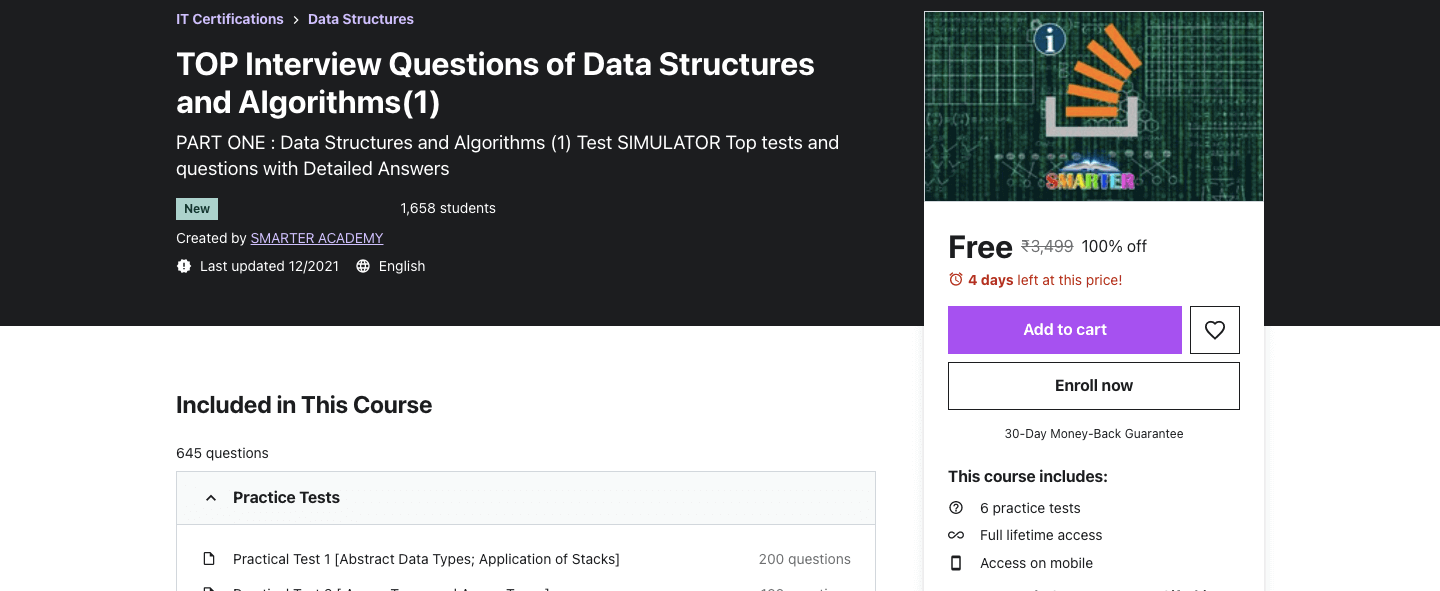Free Practice Test Title: TOP Interview Questions of Data Structures and Algorithms(1)
PART ONE : Data Structures and Algorithms (1) Test SIMULATOR Top tests and questions with Detailed Answers

Free Practice Test Title: TOP Interview Questions of Data Structures and Algorithms(1)
PART ONE : Data Structures and Algorithms (1) Test SIMULATOR Top tests and questions with Detailed Answers

TOP Interview Questions of Data Structures and Algorithms(1)
PART ONE : Data Structures and Algorithms (1) Test SIMULATOR Top tests and questions with Detailed Answers
In computer science, a data structure is a data organization, management, and storage format that enables efficient access and modification. More precisely, a data structure is a collection of data values, the relationships among them, and the functions or operations that can be applied to the data, i.e., it is an algebraic structure about data.
Data structures serve as the basis for abstract data types (ADT). The ADT defines the logical form of the data type. The data structure implements the physical form of the data type.
Different types of data structures are suited to different kinds of applications, and some are highly specialized to specific tasks. For example, relational databases commonly use B-tree indexes for data retrieval,[6] while compiler implementations usually use hash tables to look up identifiers.
Data structures provide a means to manage large amounts of data efficiently for uses such as large databases and internet indexing services. Usually, efficient data structures are key to designing efficient algorithms. Some formal design methods and programming languages emphasize data structures, rather than algorithms, as the key organizing factor in software design. Data structures can be used to organize the storage and retrieval of information stored in both main memory and secondary memory.
How to Subscribe For TOP Interview Questions of Data Structures and Algorithms(1)?
Apply Coupon Code: 5653DBAEFA1791B4D97A
**Note: Free coupon/offer may expire soon.**
Facebook Group(Mandatory to Join): Click Here
Join our Telegram group(67,000+ Members: Daily Jobs & Courses): Click Here
Join our Telegram group(Free Certification Courses): Click Here
WhatsApp Group(Only for Indian Users): Click Here to Join
Table of Contents